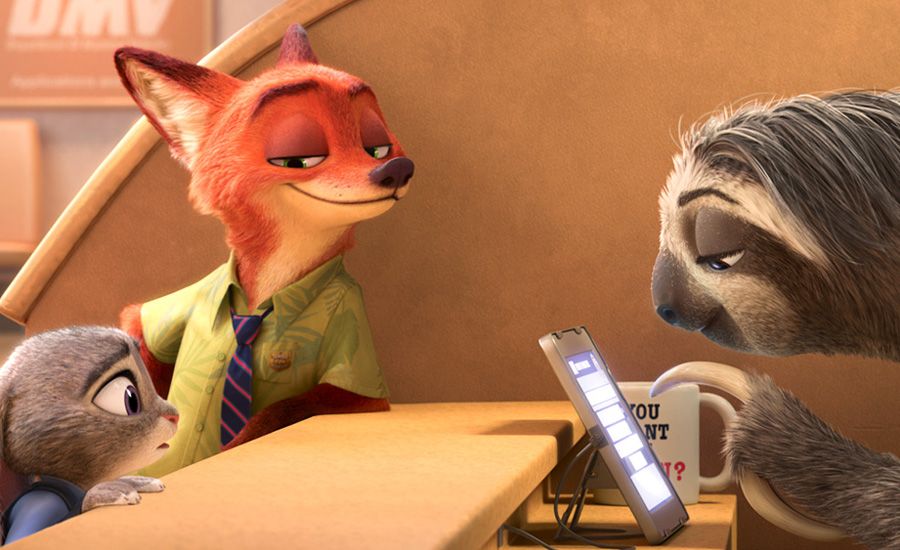Disney’s gone wild.
Circumventing its bread-and-butter, formulaic plot and “follow your dreams” message, Disney takes a daring step into new territory with Zootopia, a commentary on systemic racial, class and gender inequality—and it may be the studio’s best film, yet.
The film imagines an animal world where predators have been tamed and live with their former prey in what looks like perfect harmony, but inequalities born from their original hierarchy in the animal kingdom still exist. Predators may coexist peacefully with their prey – even ditching their carnivore diet for one of protein-filled bugs courtesy the aptly named fast-food restaurant Bug Burger – but they still rule over them. It’s telling that the city’s mayor is a lion, his assistant a sheep, but it’s not just government positions affected by this archaic supposition of superiority.
The main character of the film is a young rabbit named Judy Hopps (voiced by Ginnifer Goodwin), a small-town bunny from a family of carrot farmers, who decides to leave the country and become Zootopia’s first bunny cop. Historically, those law enforcement positions were reserved for the predators of the city, a species thought to be faster, more aggressive and more capable of holding positions of power.
Against the wishes of her family and fellow police officers, Judy realizes her dream of being on the force. But thanks to a less-than-impressed police captain– a 2,000 lb buffalo with a tough attitude — she’s quickly assigned the thankless job of meter maid. Staying hopeful that she’ll one day be given the chance to make a true difference in the world, Judy becomes the best meter maid the city has ever had.
When foxy con-artist Nick Wilde (Jason Bateman) ends up being a key witness in a missing animal case that’s been plaguing the precinct ever since Judy joined the force, the overeager rabbit decides to find out who’s been abducting the city’s residents and turning them wild again. She must work with the fox to solve the case, but she’s always been taught to be suspicious of foxes. (Her father even sends her off to the big city with a can of fox repellant during one of the film’s opening scenes.)
Wilde on the other hand, learned early in life that his species would always be labeled dangerous. The two are forced to fight against the roles to which Zootopian society has limited them – she learns that good intentions don’t erase prejudice while he’s finally able to accept trust and friendship despite believing himself unworthy of either of those things.
Despite the heavy subject matter, the film has plenty of fun, pop culture references to keep both kids and adults entertained (a Godfather scene with a couple of polar bears and a mole rat tops the list). Kudos to Disney for attempting to address issues of inequality in a kid-friendly way.
That’s not to say the film has found a resolution for the real-world problems our country faces. While the movie gets a deserved pat on the back for its edgy storyline, the lack of diversity in the main cast undermines its good intentions to reimagine a world with no inequality. And while the movie’s resolution is satisfying for individual characters, it’s a bit too narrowly focused to do justice to the broad, systemic social commentary to which a majority of the film’s run time is dedicated.
Ultimately though, the film is an enjoyable one with a thoughtful plot that offers a great opportunity to spark a dialogue between parents and their children. For that reason alone, Zootopia’s worth watching.
Zootopia lands in theaters March 4th.




